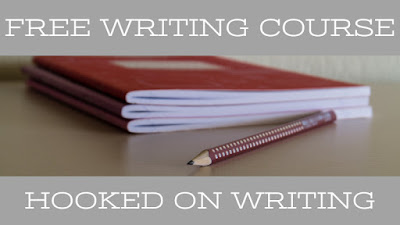The Mask of Fiction
The fiction writer's aim, of course, is not merely fabrication; it is fabrication whose aim is to enlighten, to lay bare the soul and spirit, to declare the supple and subtle complexities of our existence. And if it's done well, it's as tricky an endeavor as the pickpocket's, for every writer of fiction must be, first and foremost, a liar—a liar with a noble aim, of course, but a liar nonetheless. And the aim of the liar, his one true guiding light, is deception.
Key Points:
1. The conventional notion of autobiographical fiction is of a work where the author exploits the characters and events of his own life, where the story he tells is, in essence, his own life's story or some portion thereof—the characters and circumstances perhaps altered somewhat from the truth but only enough to keep the story rolling along, to keep it interesting, or to invoke with some measure of clarity to the author's message.
2. The author writes the way one walks through a dark and unfamiliar hallway or alley—blindly, hesitantly, fearfully. Once he was nearly finished with the book Decorations, he realized he'd written a novel about grief and regret, about the terrible pain and sadness that can overtake a life. He had disguised those feelings. He had given them the mask of fiction. He had assigned them to other characters whose lives looked nothing like my own, but they were my feelings nevertheless. Their lives were, in some shadowy and indecipherable way, his own life. His own grief and regret, had enabled him to imagine those terrible emotions in others, to create a world where those one loves are irretrievably lost.
3. The writer's recognition of the autobiographical nature of his work would not be particularly meaningful, of course, if it had not relevance to the reader. When a fiction writer recognizes that this is his obligation – not merely to tell a good lie but to tell a lie so good that it has the very ring of truth, the taste and touch and smell of truth—he begins to see that his own life, his own notion of right and wrong, of how we are meant to live our lives, must always be there in his work.
4. Writing teachers frequently exhort students to write what they know. What we know, though, is not all there is to us. We are also, in a way, what we don't know. It's not just writers, after all, who are searchers, who long for companionship and affection, who wish each day so make something more of heir lives. Young writers might be well served—both in pursuit of their craft and in pursuit of their lies—if they attempt to write beyond what they know.
5. Both reading and writing are acts of supreme faith. They are both a call to grace, a belief in the miraculous—that we might come to see through stories what we had not previously seen, that we might come to understand what had, before that moment, remained uncertain, undefined. The mask of fiction, of writing and reading stories, does not, in the end, disguise our faces but instead reveals who we really are. In the end, I think, stories acknowledge life's difficulty and sadness but insist that we go on anyway, that we always hold to our faith, to our belief in grace.
6. It is both a great privilege and a terrible struggle for fiction writers to offer so much in their work, to connect stories that attempt to inch their way toward an answer to that difficult question of why we do what we do, what it is exactly that we hope to offer the world.
Excrepted from Creating Fiction, edited by Associated Writing Programs president, Julie Checkoway
Description
Unable to secure a coveted spot in a creative-writing program? Unwilling to make the life changes necessary to do so? Creating Fiction is a fiction-writing course from some of those programs' top instructors. Among the finest of these 23 never-before-published essays about fiction writing--each of which is accompanied by a few writing exercises--are those by Jane Smiley on revision, John Barth on plot, Carrie Brown on the writing of magic realism, and Julie Checkoway on "The Lingerie Theory of Literature" ("The fundamental secret ... to the effective ending," Checkoway confides, "is to practice the restraint one sees in those Victoria's Secret lingerie ads--enough coyness to tantalize, enough enigma to tease, but never, ever, too much naked abandon").
And Philip Gerard, author of Hatteras Light and instructor at UNC-Wilmington, has written a standout piece about structuring the novel and story collection. "It astonishes me," says Gerard, "that intelligent people who would not hold a wedding, plant a garden, or even slap together a utility shed without exhaustive planning nonetheless regard the novel as a spontaneous literary event that just happens onto the page." Of course, there are many novelists who would disagree with Gerard about such planning, but Gerard is not advocating writing an outline and sticking to it. "The central paradox of writing the novel," he says, is that "you have to know where it's going, but when it speaks to you, shows you a better direction, you have to be ready to abandon your plan and listen to the story." Gerard also has unorthodox ideas on the organizing of story collections. While most writers obsess over story arrangement, Gerard's approach is more relaxed. "Enough readers read at random within the collection," he advises, "that worrying too much about the order of stories may distract the writer and editor from more important considerations." And whatever you do, don't be overwhelmed by the concept of writing a book. "Nobody writes a book," says Gerard. "What you write every day is a piece of a book, a fragment, a scene." --Jane Steinberg
Product Description
Visit the workshops of twenty-three of the best fiction-writing teachers in the country. Learn how to revise from Pulitzer Prize-winner Jane Smiley. Find new ways to evoke time and place from Richard Russo, author of Nobody's Fool. National Book Award - winner Charles Johnson offers a passionate discussion of the writer's apprenticeship. Lan Samantha Chang, author of the acclaimed story collection Hunger, presents strategies for structuring stories. John Barth, one of the most influential writers and theorists of the past forty years, explores elements of storytelling. Creating Fiction is a partnership between Story Press and the Associated Writing Programs, an organization of nearly three hundred college and university writing programs. The contributors, members of the AWP, have taught thousands of students the art and craft of telling stories. Now their experience and wisdom can be found in one comprehensive book.
Creating Fiction, edited by Associated Writing Programs president, Julie Checkoway





.jpg)

.jpeg)

